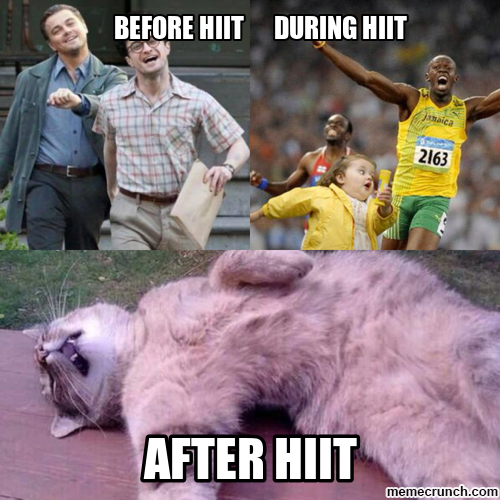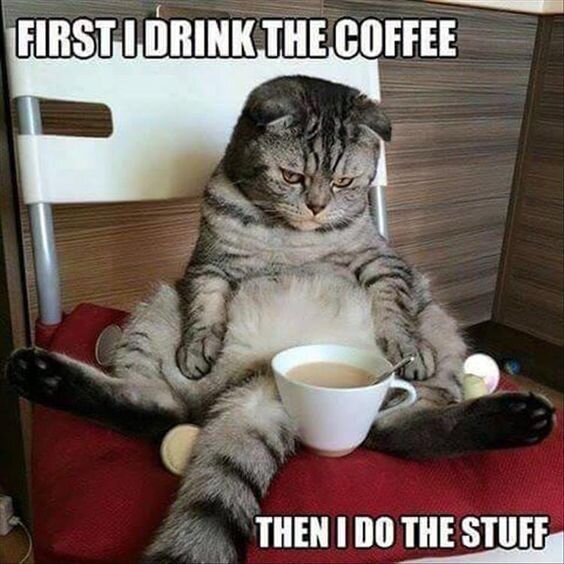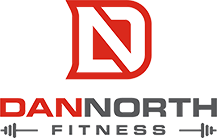I’m not sure where or how it started, but somewhere along the way the “high intensity training” craze started to emerge. Whether it was the exploding popularity of CrossFit or other workout classes like Orange Theory, people started to fall in love with the idea of kicking the shit out of themselves in the gym.
The problem? Too many people are beating themselves into the ground with their constant high intensity workouts, and still not seeing any progress. And in many cases, these people are actually regressing in their fitness.

It’s not a lack of intensity that’s the root of all evil, it’s too much intensity coupled with a lack of good post-workout recovery. Too many people are working their tails off in the gym, only to go home and hammer a box of cookies with an espresso.
The importance of post-workout recovery can’t be understated when it comes to your progress. When your recovery habits contradict your workouts, progress stalls (and sometimes regresses). When your recovery habits compliment your workouts, progress happens.
Here are some contradicting post-workout habits you should stop doing today.
1. NO COOL DOWN.
How to fix it: Breathe
A simple and often overlooked component of training is the cool down after your workouts. Many of us are so eager to get out of the gym, that we forget to spend at least a couple of minutes cooling down.
The cool down is your first step forward towards optimal recovery between training sessions.
You want to come back down to a parasympathetic state, allowing your muscles to recover more efficiently. Your ability to digest and absorb nutrients vastly improves as well.
After a hard training session, simply lay on your back with your arms stretched out to your sides (palms facing up to the ceiling) and your eyes closed. Focus on deep, diaphragmatic breathing (through the belly) for a 3 second count in and a 3 second count out. Do this for 2 min post-workout.

2. NO PROTEIN.
How to fix it: Have protein after every workout.
This might seem painfully obvious to you, but the amount of people that neglect protein after their workouts is staggering.
Here’s something you need to know: exercise literally breaks your body down.
You get no benefit, whatsoever, from your training if you’re not recovering. Fact.
One of the most essential forms of recovery is your nutrition, with protein intake being at the forefront of muscle repairment.
Something simple you can adhere to is having a protein source with every meal, and especially after every workout.

3. DRINKING COFFEE.
How to fix it: Limit or eliminate caffeine after your workouts.
I love coffee. Probably more than you. But I tend to only drink it in the mornings before my workouts.
Caffeine is a stimulant and is a great way to “heighten your senses” and prime your nervous system before your workouts.
High levels of mental and physical stress (whether or not it’s exercise induced stress) cause the release of cortisol (which is catabolic). Caffeine consumption enhances the release of cortisol. As you train, glycogen levels start to deplete, and cortisol levels start to rise (i.e. your body is in a catabolic state).
It’s during the post-workout recovery process that you want to shift from a catabolic (muscle-deteriorating) state to an anabolic (muscle-building) state.
So, you can probably see why consuming more caffeine after your body is already in a catabolic state may not the best idea for your post workout recovery.
It’s not an end all be all discussion. Having some coffee every now and then after your workouts isn’t going to make or break your progress.
But is it a good idea to skip that cup of Joe after your workout? Probably.
4. NOT SLEEPING ENOUGH.
How to fix it: Prioritize your sleep and make a pre-sleep ritual.
Most people who think they get enough sleep, don’t.
I hear it all the time, “I get at least 8 hours every night! I swear!”
Yeah, but there’s a difference between laying bed for 8 hours and actually sleeping for 8 hours.
Most people under sleep, which has direct implications on your ability to recover. You stress levels rise, cortisol elevates, and ability to focus declines (just to name a few).
“But I can perform fine on 6 hours of sleep!”
No, you can’t. You’ve just gotten used to performing at a shitty level that you think is normal. Sorry, tough love.
So, try setting a pre-sleeping ritual to get ready for bed. Everyone is different and your routine might be different than mine. What I’ve found works well for me is dimming or shutting off the lights an hour before bed and reading. I leave my phone out of my room as well (this was a huge game changer).
Summary
Recovery is essential and is often the missing piece of the “training puzzle” for most people. Put as much emphasis on your recovery as you do your training and you’ll be pleasantly surprised at the results.





